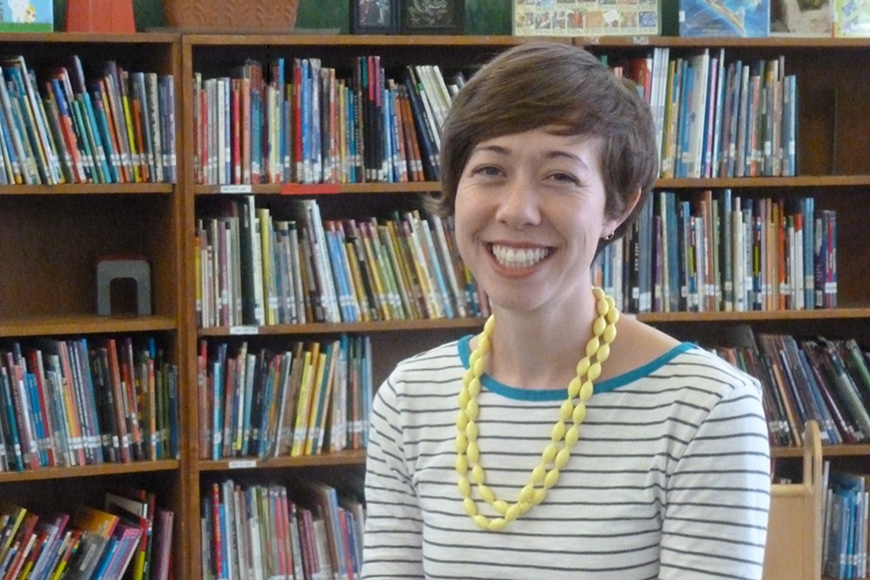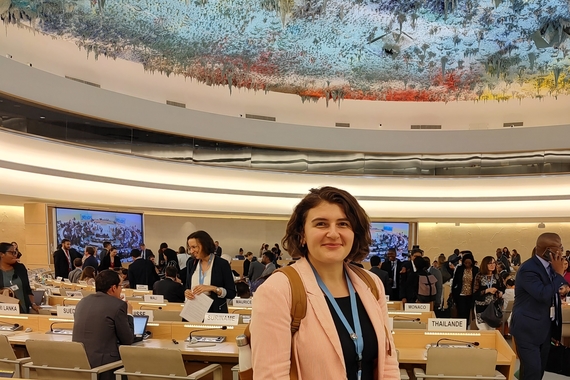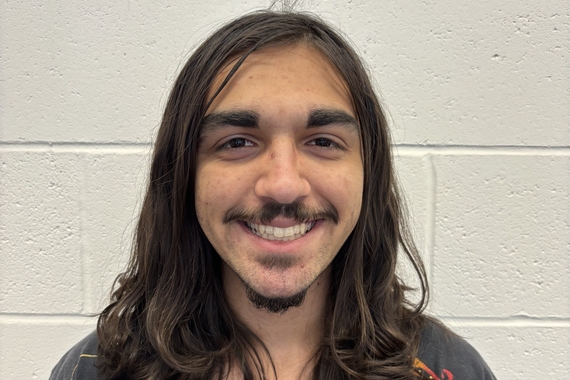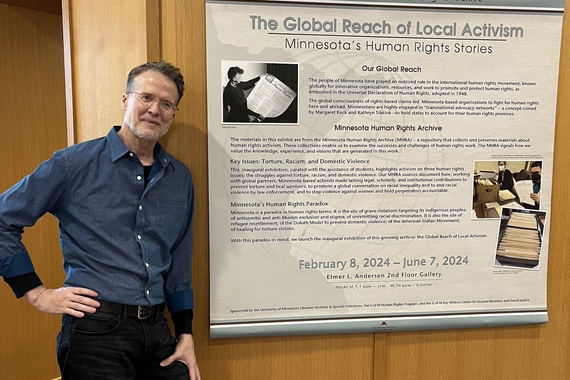Human Rights Grad Minor Spotlight: Aleisha Smith
Passionate about the intersections of literature, human rights, and education, Aleisha Smith has a dizzying number of questions left to explore. Smith admits she’s “probably not the best Ph.D. candidate” because she struggles to narrow down on one topic. While she laments that her boundless curiosity might ruin her, it keeps her plenty excited. The Ph.D. candidate in English Literature is also pursuing a Human Rights graduate minor. We sat down with her to get to know her and discuss her past work, academic interests and experience as a Human Rights minor.
So what’s your story? How did you get here?
I grew up in California. My whole family is from the Bay Area. I went to undergrad in Washington state at a small liberal arts school called the University of Puget Sound, then I lived in Seattle after that. Right after college, some of my friends and I started a magazine about international relations... That was really fun, but it was sort of crazy and we didn’t have any money!
After that, I got into teaching. I found out about a master’s program in English literature through Middlebury. It was geared towards teachers, so it was every summer for five summers. During the first summer in 2010, I met a fellow who was also a teacher. We really liked each other, but I lived in Seattle and he lived in North Carolina. We knew we’d see each other the next summer for our program (it’s a lot like summer camp for teachers) and continued to talk and visit each other. I left the country for the 2011 - 2012 academic year to run a study abroad program in Asia. We started dating when I came back from that trip in summer 2012. In 2015 we moved to Minnesota, then got married the year after.
How did you get involved with the Human Rights graduate minor?
I started out planning to look at 19th century British literature and wanted to look at the British Empire and China. Then I got here—I realized I wanted to switch my area of emphasis so that I could still try to touch on some topics that have to do with youth, young adults and social justice. I found Professor Frey’s Human Rights Advocacy class. During that semester I realized that human rights provides a larger framework for addressing the issues I already care about, at both the local and international levels, so I decided to do a human rights minor. I switched over to contemporary American and multicultural literature so I can explore how different social issues are presented and challenged in literature. In addition, I wanted to understand how youth with marginalized backgrounds interact with, and are represented in, 21st century literature.
How does human rights tie into the work that you do as a Ph.D. candidate in English literature?
Literature and human rights both offer ways for us to envision and enact better futures. I think the way we tell stories is vital to our identities, to building empathy, and to understanding the world around us. Storytelling is at the heart of great literature as well as human rights work, since it’s through stories that we can begin to empathize with the lives of others and then move to action. So I’m interested in the stories that we tell about rights and justice on many levels: how fiction can often present issues in ways that are more powerful than nonfiction; how literature pushes for rights and challenges dominant forms of power; how human rights organizations use stories as a tactic; how powerful states also weave their own narratives about their human rights records; and how stories of rights or injustice in turn shape our identities as victim, advocate, aggressor, etc. I want to explore how these discourses interact with one another and how they shape our understanding of human rights and our concepts of justice. I think these lines of inquiry connect back to my interests in access to education as well.
As a teacher, were there any issues with the education system that you noticed?
When I was in North Carolina before I came here, I was working at an elementary school. It was really apparent how from such a young age, kids get behind and they can feel so frustrated and it can feel so hard for them to catch up.
In the time that I worked there, it was really segregated, so the kids who were really behind were predominantly African American kids who lived in the housing projects. At such a young age, kids are already coming out with really large advantages or disadvantages. There are challenges to making them feel like they belong in a school system, which is really not set up for many kids to feel like they’ll succeed.
The other problem is that teachers have so many responsibilities and so few resources. You can see what a kid needs but you still have a classroom of all these other kids too, so you have to work with averages. My co-workers were all so compassionate and passionate, but it was still hard for them.
What is it like pursuing a Human Rights graduate minor while simultaneously pursuing a Ph.D.?
The Human Rights minor has been a really great way to approach issues from a different angle and in a different framework… The best part about being a Human Rights minor is that it’s allowed me to take classes that are outside of the classic humanities discipline, so I’ve been able to take a law class, Professor Frey’s Human Rights Advocacy class, and an anthropology class... I think that it’s given me a better perspective than if I was taking just literature classes. I love literature but I also like seeing how other disciplines solve problems and what sort of methodologies they use.
Do you have any plans for incorporating human rights into your dissertation?
I’m not sure what my dissertation will look like yet because it still needs to be narrowed down. However, I do want to do something with human rights discourse. I was thinking about looking at how states, organizations, or social justice groups use human rights discourse and how that interacts with, connects, or doesn’t connect with how different types of rights or personhood are represented in literature.
Is there anything else that interests you about the intersection of human rights and literature?
I don’t know if this fits exactly within human rights, but one thing I’m really interested in, as a person who is half Chinese and half white, is how other multiracial people are represented in literature. I’d have to do more research, but I’ve noticed a trend in young adult (YA) literature where multiracial characters don’t have viable futures, or die. Despite more representation of people of color and mixed people in the media, and demographics supporting that more multiracial people are being born, in YA novels, mixed kids are often not allowed to have a future. For instance, Harry Potter. Hagrid is half giant and half human. He lives but he’s totally ostracized and no one questions it.



